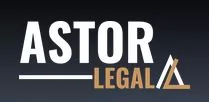It is one of Australia's largest drug busts, and Police say they have brought a Sydney drug cartel to its knees.
Operation Pinnacle, a sophisticated Police investigation spanning 2 years has resulted in over 250 drug charges being laid.
The cartel is said to have been responsible for a complex distribution network that funnelled methamphetamine (also known as 'ice'), from Sydney into regional towns.
Police made multiple arrests as a result of the investigation throughout regional New South Wales and Sydney's west.
The mastermind of the drug supply network was alleged to be 34-year-old Kyle Anthony Thompson, who has been arrested and refused bail.
Police Operation Investigates Drug Syndicate
In May 2020, hundreds of police officers came together to simultaneously strike multiple locations in the regional town of Wellington, as well as locations in Western Sydney.
The operation had been investigating for the past two years, amassing evidence to ensure the prosecutions would be successful.
Wellington has earned the unenviable reputation as one of the country's biggest drug towns.
Criminal syndicates refer to the country town as 'Little Antarctica' and the 'South Pole' due to the amount of 'ice' that is bought and sold on the streets.
Speaking to the media, NSW Police superintendent Peter Mckenna said, "This crew, this syndicate, has been running amok for too long...They are getting brought to justice."
Alleged Mastermind Arrested
Police executed an arrest warrant on the alleged mastermind's house with media cameras in tow.
Police have alleged that 34-year-old Kyle Anthony Thompson is the 'kingpin' of the multi-million dollar prohibited drug network.
The Police facts sheet claimed that since February 2019, Mr Thompson had negotiated or received 12.5 kilograms of ice, 2.5 kilos of heroin, over 5 kilos of cannabis and approximately 530 grams of cocaine.
Search Uncovers Drugs and Cash
In addition to Kyle Thompson, ten other members of the alleged drug network were arrested in Wellington. A further six arrests were made for drug charges in Bankstown.
Superintendent McKenna said, "We've got the runners, we've got the street level, the middle level and the upline suppliers... we've taken out and absolutely smashed a whole syndicate today."
Following the torrent of arrests, both NSW and Australian Federal Police officers executed search warrants on numerous residences and discovered over $450,000 cash, 1.4kg of gold, firearms, electronic stun devices, ammunition, detonators, safes and a poker machine.
They were also able to find methylamphetamine, MDMA, heroin, buprenorphine, cannabis.
In the garage of one house, police jackhammered a concrete floor to discover a hidden safe containing hundreds of thousands of dollars and gold.
Police told media that they suspected the large amounts of cash could be the result of the pandemic.
It was suggested that the syndicate used poker machines to launder their drug money.
However, the closure of pubs and clubs during the height of lockdown meant that the group had to find other ways to hide the money.
NSW police commissioner Mick Fuller, who personally briefed officers on the day of the raids, said Operation Pinnacle sent a message that, "No one is untouchable."
Drug Supply Charges
Section 25(1) of the Drug Misuse and Trafficking Act 1985 (NSW) sets out that if you knowingly took part in the process of supplying, or agreeing to supply a prohibited drug, you can be guilty of an offence.
You can fight a supply prohibited drug charge in two ways. Firstly, the prosecution must prove beyond reasonable doubt:
- You engaged in the supply of a substance, OR
- Knowingly took part in the supply of a substance; AND
- That substance was a prohibited drug, OR
- You believed, or led the recipient to believe that it was a prohibited drug
If any of these elements are not made out, then you can be found 'not guilty'.
Secondly, you can rely on one of the below defences to drug supply charges.
- You weren't aware that you possessed the drug
- Carey defence: You were holding the drug on behalf of another person and intended to give it back to that person (Carey (1990) 50 A Crim R 163)
- The substance was not a prohibited drug, AND you did not believe, nor did you hold it out as a prohibited drug
- The prohibited drug was for your personal use only
- Illegal search: If Police found the drug due to an unlawful search. This may be due to Police not having reasonable grounds to search you, or any warrant(s) they have used being improper or defective
- You were not involved in any steps of the supply
- No supply has taken place and you had no intention to supply
- Duress: You were forced to commit the drug supply
The maximum penalties for drug supply charges are based on the quantity of the drug.
For any amount less than the indictable quantity, the maximum penalty for drug supply is 15 years imprisonment and/or a fine of $220,000.
However, if the case is dealt with in the Local Court, these penalties are reduced to 2 years jail and/or a fine of $5,500.
For a commercial quantity drug supply, the maximum penalty becomes 20 years jail and/or a fine of $385,000.
At the top of the range, for large commercial quantity drug supply, the maximum penalty is life imprisonment and/or a fine of $550,000
Facing Drug Charges?
Drug supply charges are taken very seriously by the Courts. The maximum penalties reflect the very high likelihood of jail.
Despite this there have been a number of recent examples of these charges being dismissed after an accused retains experienced criminal defence lawyers. Having the best criminal lawyers for drug charges will go a long way towards beating these charges.
The content of this article is intended to provide a general guide to the subject matter. Specialist advice should be sought about your specific circumstances.

